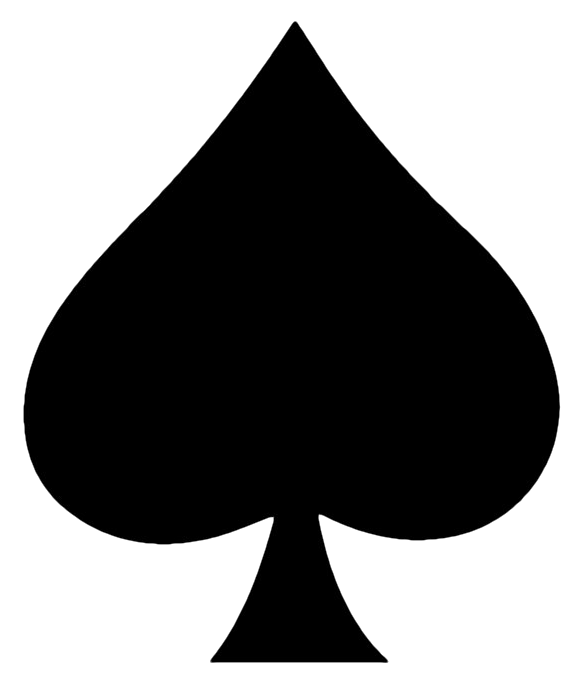


 4
4
4
4
4
4
4
4
Step 1 – IDENTIFY THE PROBLEM(S)
• Briefly state the Scenario: How do you decide the first person to treat or the allocation of single resources between two casualties with the same triage score?
• List the Issues that arise from the scenario.
• Identify Critical Information required and Assumptions to be made:
The primary issues in this scenario revolve around the ethical decision-making in triage, specifically how to impartially allocate limited medical resources between two patients of equal clinical urgency. Critical information required includes a comprehensive understanding of each patient's medical condition beyond just the triage score, potential outcomes of immediate versus delayed treatment for each, and the specific resource being considered for allocation. Assumptions that must be made include the stability of each patient's condition over time and the immediate availability of resources to effect treatment. Furthermore, it is assumed that any decision made aligns with both ethical guidelines and legal standards, focusing on maximizing benefits and minimizing harm to both patients without discrimination.
Step 2 – ANALYSE
Patient: The primary duty of healthcare personnel is to preserve human physical and mental health and alleviate suffering while providing necessary care with humanity and respecting the dignity of the person concerned, with no discrimination of any kind, whether in times of peace or of armed conflict or other emergencies. This ethical mandate from 'Ethical principles of health care in times of armed conflict and other emergencies' supports the crucial role of medical professionals in prioritizing care based on medical need alone, not on any other discriminatory grounds.
Clinical: The decision to allocate resources between two patients with the same triage score should be grounded in a thorough evaluation of their immediate medical needs and the expected outcomes. This decision-making process is guided by Article 10 of Protocol I and Article 7 of Protocol II to the Geneva Conventions, which state that all wounded and sick shall receive medical care and attention as required by their condition with the least possible delay and without any adverse distinction founded on grounds other than medical ones (https://ihldatabases.icrc.org/applic/ihl/ihl.nsf/Article.xsp?action=openDocument&documentId=2F86D0055DF0E6ECC12563CD0051DA8A, https://ihldatabases.icrc.org/applic/ihl/ihl.nsf/Article.xsp?action=openDocument&documentId=6756482B4D7C7A68C12563CD0051DEA9).
Legal: The framework for triage decisions is also reinforced by Customary IHL, Rule 87, which underscores the humane treatment requirement. This rule states that civilians and persons hors de combat must be treated humanely, with specific reference to the wounded, sick, and shipwrecked among others, further emphasizing the need for fairness and impartiality in treatment decisions (https://ihl-databases.icrc.org/customary-ihl/eng/docs/v1_cha_chapter32_rule87).
Societal/Military: The ethical guidelines provided by the World Medical Association (WMA) underline the responsibility of a physician to use healthcare resources efficiently to benefit patients and their community. The WMA International Code of Medical Ethics and the Declaration of Lisbon on the Rights of the Patient articulate these principles clearly, stating that physicians must strive to use health care resources in the best way and that all patients are entitled to a fair selection procedure for limited treatments based on medical criteria (https://www.wma.net/policies-post/wma-international-code-of-medical-ethics/, https://www.wma.net/policies-post/wma-declaration-of-lisbon-on-the-rights-of-the-patient/).
Step 3 – FUSE
• Summarise conclusions
• Insert citations to key reference sources for your analysis
• Determine the exact Decision(s) to be made
Triage and resource allocation must prioritize clinical urgency and potential patient outcomes, adhering strictly to established ethical guidelines and legal standards. These decisions should be guided by principles set forth in the Geneva Conventions and the World Medical Association's ethical codes, which mandate humane treatment and equity in medical care provision without discrimination based on any non-medical grounds. The decision-making process, therefore, must ensure that any allocation of scarce medical resources between patients with the same triage score is based solely on medical necessity and the likelihood of benefit, as explicitly stated in the Geneva Conventions (https://ihl-databases.icrc.org/applic/ihl/ihl.nsf/Article.xsp?action=openDocument&documentId=2F86D0055DF0E6ECC12563CD0051DA8A) and the WMA International Code of Medical Ethics (https://www.wma.net/policies-post/wma-international-code-of-medical-ethics/). The exact decision to be made will involve selecting the patient who, based on thorough clinical assessment, is assessed to benefit most immediately and significantly from the available resources, ensuring that this decision is transparent and justifiable according to these ethical and legal frameworks.
Step 4 – DECIDE
• What is your Decision?
• Why (can you justify it)?
• Residual uncertainly, need for review?
In conflict situations and other emergencies, the ethical principles guiding triage remain consistent, emphasizing that medical personnel must act to preserve human physical and mental health and alleviate suffering, always respecting patient dignity and ensuring non-discrimination https://healthcareindanger.org/wp-content/uploads/2021/03/4504_002-ebook.pdf. The decision is to allocate the resource to the patient whose immediate medical needs are greater and who stands to benefit most from the intervention, as determined by a thorough clinical evaluation. This is justified by the ethical principles outlined in the Geneva Conventions, which emphasize the necessity of treating all patients based solely on their medical condition without discrimination (https://ihldatabases.icrc.org/applic/ihl/ihl.nsf/Article.xsp?action=openDocument&documentId=2F86D0055DF0E6ECC12563CD0051DA8A), and by the World Medical Association's guidance on the fair and efficient use of healthcare resources (https://www.wma.net/policies-post/wma-international-code-of-medical-ethics/). Residual uncertainty may arise in cases where clinical distinctions between patients are less clear, necessitating regular review of the decision-making process and consultations with other medical personnel to ensure that ethical standards are consistently applied and that all decisions are transparent and justifiable.
Further discussion points:
• What types of medical capabilities might be in short supply in an emergency situation? - facilities, evacuation spaces, beds, blood, drugs, oxygen, etc.
• What are the different systems for triage?
• What is the difference between a Major Medical Incident and a Mass Casualty Incident?
• How does this compare with triage in pandemics? - consider King of Spades as well
Further Reading
• Section 10: Medical critical incident management. Pages 3–22 in Allied Joint Medical Support Doctrine, AJP 4-10(C). Available at: https://www.coemed.org/resources/stanag-search
• Bazyar J, Farrokhi M, Khankeh H. Triage Systems in Mass Casualty Incidents and Disasters: A Review Study with A Worldwide Approach. Open Access Maced J Med Sci. 2019;7(3):482-494. Published 2019 Feb 12. DOI: https://dx.doi.org/10.3889%2Foamims.2019.119
• Horne ST, Vassallo J. Triage in the Defence Medical Services. BMJ Military Health. 2015;161:90-93. DOI: http://dx.doi.org/10.1136/jramc-2014-000275
• Royal College of Emergency Medicine Learning. Triage in Mass Casualty Situations. Available at: https://www.rcemlearning.co.uk/reference/triage-in-mass-casualty-situations/#1572966010658-95ac0428-a16c
• Steinberg A, Levy-Lahad E, Karni T, et al. Israeli Position Paper: Triage Decisions for Severely Ill Patients During the COVID-19 Pandemic. Rambam Maimonides Med J. 2020;11(3):0019. Published 2020 Jul 31. DOI: https://doi.org/10.5041/RMMJ.1041 1
Reviewed and formatted by: Alexandros Carver, 3rd Year Medical Student KCL, December 2024
Further reading:
Section 10 - Medical critical incident management Page 3-22 At: Allied Joint Medical Support Doctrine. AJP 4-10(C) https://www.coemed.org/resources/stanag-search
Bazyar J, Farrokhi M, Khankeh H. Triage Systems in Mass Casualty Incidents and Disasters: A Review Study with A Worldwide Approach. Open Access Maced J Med Sci. 2019;7(3):482-494. Published 2019 Feb 12. doi: https://dx.doi.org/10.3889%2Foamjms.2019.119
Horne ST, Vassallo J. Triage in the Defence Medical ServicesBMJ Military Health 2015;161:90-93. http://dx.doi.org/10.1136/jramc-2014-000275
Royal College of Emergency Medicine Learning. Triage in Mass Casualty Situations. At: https://www.rcemlearning.co.uk/reference/triage-in-mass-casualty-situations/#1572966010658-95ac0428-a16c
Steinberg A, Levy-Lahad E, Karni T, et al. Israeli Position Paper: Triage Decisions for Severely Ill Patients During the COVID-19 Pandemic. Joint Commission of the Israel National Bioethics Council, the Ethics Bureau of the Israel Medical Association and Representatives from the Israeli Ministry of Health. Rambam Maimonides Med J. 2020;11(3):e0019. Published 2020 Jul 31. doi:10.5041/RMMJ.10411
